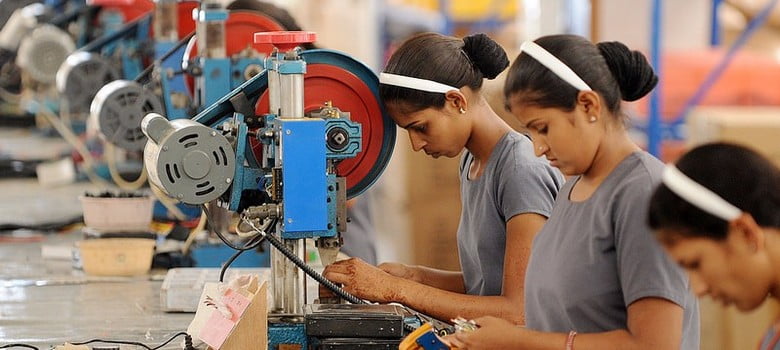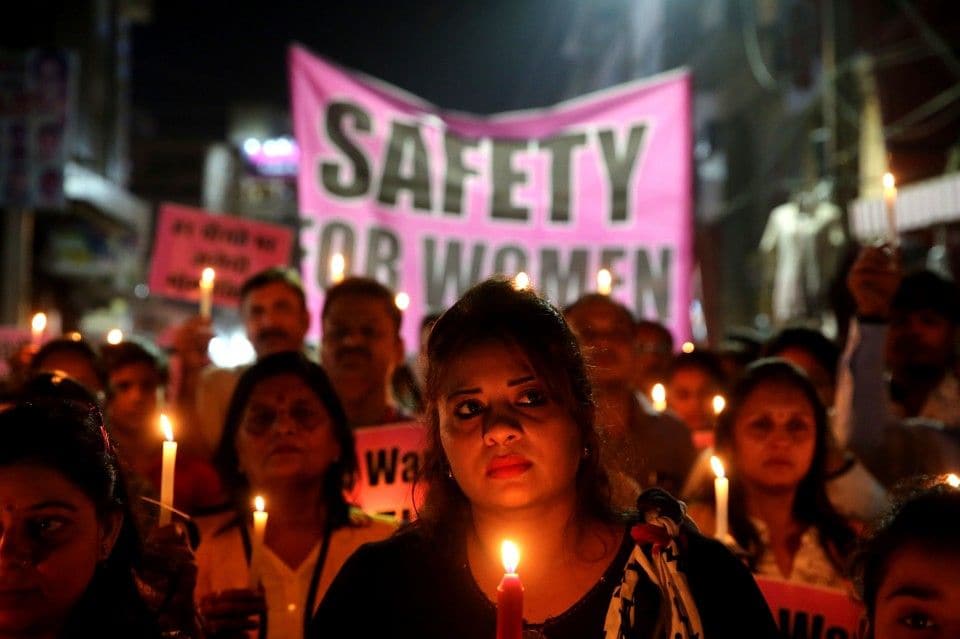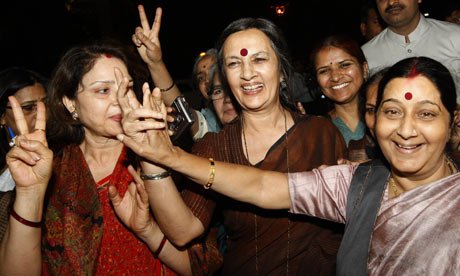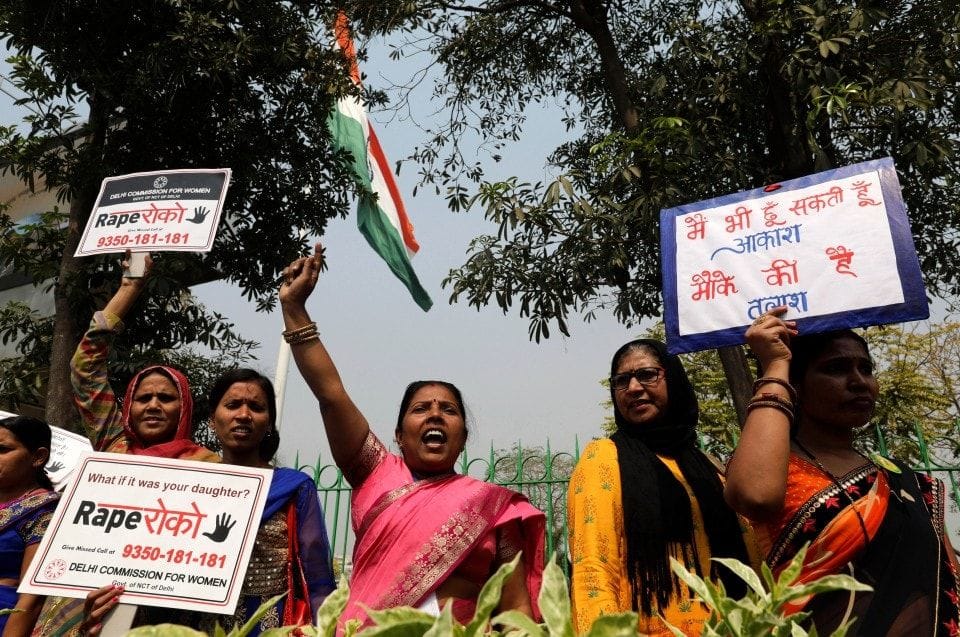Posted by Angellica Aribam
Since the last few years, Indian women have been facing tremendous economic hardships. Currently, India is amidst a record high unemployment cycle, and women have been disproportionately hurt. Over 1.1 crore people lost their jobs in 2018. Of this, more than 80 per cent job losses (88 lakh) were among women. The Labour Force Participation Rate (LFPR) of women was at an all-time low in 2017-2018 with just 23.3 per cent, meaning over three out of four women were neither working nor seeking work. Only nine countries have worse performance than India, and these include war-ravaged Syria and Iraq.
These numbers must raise eyebrows and push the government to act fast, considering the resounding mandate with which Prime Minister Narendra Modi has been re-elected.

Amongst the many facets the recent election would be remembered for, gender stands out. For the first time in the history of democratic India, the women voter turnout was at par with men. Further, more women than ever have been elected to the Lok Sabha.
This came in the backdrop of all major political parties treating women as an important vote-bank. The concerns and aspirations of the women voter were at the core with various women-centric schemes, policies, and greater representation being promised.
The decisive mandate thus confers on the Narendra Modi-led government a unique opportunity. The government must advance the cause of women by addressing the existing failures and creating new opportunities.
The Narendra Modi-led government owes it to the electorate to use this historic mandate to ensure that Indian women can finally lead an equal, empowered, and dignified life.
According to IMF Chief Christine Lagarde, gender parity in the workforce can boost India’s GDP by 27 per cent. The more women stay outside of the workforce, the greater the roadblocks towards India achieving its optimal growth potential. There is an urgent need for a massive influx of women in the workforce.
To this end, the government should consider fiscal incentives to businesses that employ a certain percentage of women. It should promote women entrepreneurs, ensure easier access to credit and marketing facilities. The government must also invest in skill training, and ensure affordable and accessible higher education for all women.
There is also a need to review all existing laws that stipulate wage rates to reduce the gender pay-gap by ensuring that men and women are paid the same wage for similar work.
Research highlights that lack of public safety keeps women away from educational and economic opportunities. Despite ample stringent legislations, the security of women continues to remain a grave concern in India.

Crime against women has risen unabated. The government will be well advised to shed its apathetic approach towards the safety of women. Not even half of the Nirbhaya fund was used since 2015. In a similar vein, 56 percent of the fund allocated for Beti Bachao, Beti Padhao’was used solely in advertisement.
As the entrenched patriarchy of centuries is the root cause of India’s mistreatment of its women, educating and sensitising the society about gender equality would be the crucial next step. This must be followed with structural changes in administration and reforming the justice delivery systems.
The government must consider gender mainstreaming, budgeting, and initiating legal awareness programmes, especially in rural areas. Most importantly, it must be open to time tested progressive measures.
According to IMF Chief Christine Lagarde, gender parity in the workforce can boost India’s GDP by 27 percent. The more women stay outside of the workforce, the greater the roadblocks towards India achieving its optimal growth potential.
Recently, we saw the remarkable courage of women from various walks of life using the power of their voice to call out predators in the Indian MeToo movement. It highlighted the need for a comprehensive review of the Sexual Harassment of Women at Workplaces Act, 2013, requiring it to be extended to all workplaces. Additionally, there is a need to institute measures to address all forms of harassment of women. However, the solutions lie not just in executive actions but also ensuring women participate in decision making.
Also read: A Critique Of The BJP Government Through A Feminist Lens
Globally, when more women are at the decision-making table, more inclusive and progressive policies are implemented. In this election, the representation of women in the Parliament has seen an incremental growth from 11.8 per cent to 14.3 percent. Though historic for us, it is far below the global average of 22.4 per cent. With this dismal figure, India won’t be able to realise the true potential of inclusivity at the higher rungs of government.
According to a study by Harvard University, in the villages where women have been elected in local governments, it was found that there has been an increase in access to healthcare, infrastructure, public service delivery, and most importantly, education attainment of girls.
It is thus imperative that more women be involved in governance. Almost all major political parties are in agreement with the idea of a Constitutional Amendment mandating a gender quota of 33 per cent in legislative bodies, also known as the Women’s Reservation Bill. The Bill, when enacted, will pave the way to harness the vast untapped potential of women leadership. A similar pattern was observed in the local governments in the aftermath of a similar gender quota implemented in 1993 which has increased representation from 3-4 per cent to 46 per cent.

This move would lead to a revolutionary stride in terms of growth and development. Though this is a low hanging fruit, it is the most potent. The government should make it the first order of business in the ongoing Parliament session.
The aforementioned are all achievable goals. The Narendra Modi-led government owes it to the electorate to use this historic mandate to ensure that Indian women can finally lead an equal, empowered, and dignified life.
Also read: Why The Women’s Reservation Bill Is The Need Of The Hour
Angellica Aribam is the former National General Secretary of the National Students’ Union of India, the students’ wing of the Indian National Congress. She holds a Master’s degree in Public Policy from Peking University, China. As a staunch advocate for gender and racial rights, she regularly writes for various Indian publications. In her spare time, she loves to read, cook, and model.
Featured image source: Washington Post
About the author(s)
Guest Writers are writers who occasionally write on FII.




